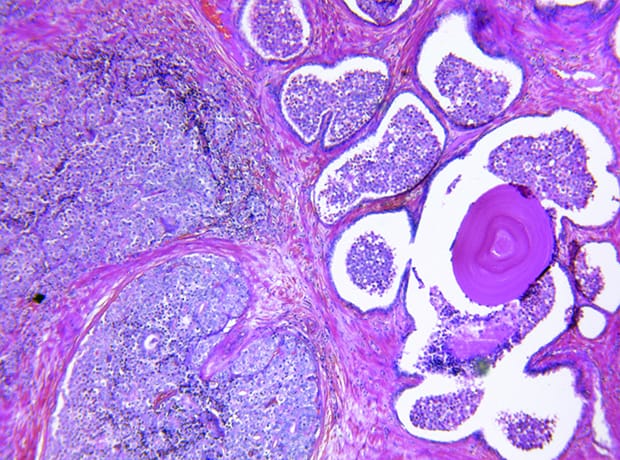Anticancer drugs will be responsible for 90% of nearly 612,000 predicted US cancer deaths in 2024
Oregon Therapeutics and Lantern Pharma have entered into a strategic artificial intelligence (AI)-driven collaboration to optimise the development of a protein disulfide isomerase (PDI) inhibitor drug candidate for a variety of novel and targeted cancer indications.
XCE853 is being developed by Oregon in various indications, including drug-resistant ovarian and pancreatic cancer, certain haematological cancers and several paediatric cancers, including central nervous system cancers.
Nearly 612,000 deaths are predicted to occur in the US in 2024 due to cancer and resistance to anticancer drugs will be responsible for 90% of those deaths.
Under the terms of the agreement, Lantern will receive equal intellectual property (IP) co-ownership and drug development rights in newly discovered biomarkers, novel indications, and pharmacological use strategies for XCE853, while Oregon is entitled to financial benefits resulting from the licensing of the background IP to Lantern.
Both companies are entitled to additional financial benefits that result from the licensing of any collaborative IP to a third party.
As part of the deal, Lantern will leverage its proprietary RADR AI platform to identify biomarkers and efficacy-associated signatures of XCE853 across solid tumours that can aid in precision development.
RADR has a growing library of over 60 million data points from many diverse types of biological measurements and oncology experiments, as well as over 200 machine learning algorithms focusing on issues central to real-world cancer drug development.
The collaboration also aims to identify tumour-based response and resistance mechanisms to XCE853 to overcome resistance and to expand the candidate’s use in addition to therapeutic cancer indications for XCE853.
Panna Sharma, chief executive officer and president, Lantern, said: “Our AI platform… is poised to make incredibly important and patient-centric decisions about the clinical future of [XCE853].”
Marc-Henry Pitty, chief executive officer, Oregon, commented: “Our team is looking forward to efficiently selecting among the landscape of ideal development options and efficiently de-risking future clinical development decisions.”




